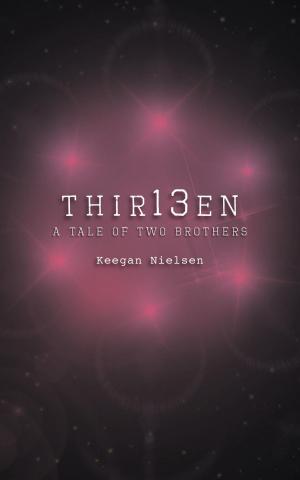Eleven Thousand Virgins: Hildegard von Bingen's Last Chants
Nonfiction, Entertainment, Performing Arts, Romance, Science Fiction & Fantasy| Author: | Alan C. Baird | ISBN: | 9781522731795 |
| Publisher: | Alan C. Baird | Publication: | December 20, 2015 |
| Imprint: | Smashwords Edition | Language: | English |
| Author: | Alan C. Baird |
| ISBN: | 9781522731795 |
| Publisher: | Alan C. Baird |
| Publication: | December 20, 2015 |
| Imprint: | Smashwords Edition |
| Language: | English |
Synopsis: Alex Barnett has a comfortable life in Los Angeles and San Francisco; it's probably too comfortable, although he can't quite admit to himself that an extended separation from his wife Nicole eats at his soul. An unusual set of seemingly unrelated circumstances impels him to seek out a centuries-abandoned monastery in southwest Germany, where he confronts the animate image of Hildegard von Bingen, the legendary twelfth-century mystic, prophet, and composer of ravishing liturgical chants. Although his friend Lars believes it's a bona-fide vision, much like the visions that fueled Hildegard's own creativity, Alex cynically distrusts his deepest instincts and drives himself to search for a more acceptable answer. His quest guides him on the path toward self-awareness, through experiences both sacred and profane. One man's inner and outer pilgrimages take him to the depths of uncertainty, and, almost inexorably, to the peak of actualization.
Background: Hildegard of Bingen (1098-1179 AD) composed many chants in honor of Saint Ursula (?-383 AD). According to legend, Ursula was a Romano-British princess who, at the request of her father, King Donaut of Dumnonia (SW England), set sail across the English Channel with 11,000 virginal handmaidens to join her future husband, the pagan Governor Conan Meriadoc of Armorica (Brittany). Before the princess could arrive, all the virgins were beheaded in a massacre, and Ursula was shot dead. Modern research suggests the phrase "XI. M. V." was misinterpreted as "eleven thousand (in Roman numerals) virgins" rather than "eleven martyred virgins."
Genre: Spiritual drama. Warning: sexual situations and language.
Semifinalist in: Writers Network competition.
Synopsis: Alex Barnett has a comfortable life in Los Angeles and San Francisco; it's probably too comfortable, although he can't quite admit to himself that an extended separation from his wife Nicole eats at his soul. An unusual set of seemingly unrelated circumstances impels him to seek out a centuries-abandoned monastery in southwest Germany, where he confronts the animate image of Hildegard von Bingen, the legendary twelfth-century mystic, prophet, and composer of ravishing liturgical chants. Although his friend Lars believes it's a bona-fide vision, much like the visions that fueled Hildegard's own creativity, Alex cynically distrusts his deepest instincts and drives himself to search for a more acceptable answer. His quest guides him on the path toward self-awareness, through experiences both sacred and profane. One man's inner and outer pilgrimages take him to the depths of uncertainty, and, almost inexorably, to the peak of actualization.
Background: Hildegard of Bingen (1098-1179 AD) composed many chants in honor of Saint Ursula (?-383 AD). According to legend, Ursula was a Romano-British princess who, at the request of her father, King Donaut of Dumnonia (SW England), set sail across the English Channel with 11,000 virginal handmaidens to join her future husband, the pagan Governor Conan Meriadoc of Armorica (Brittany). Before the princess could arrive, all the virgins were beheaded in a massacre, and Ursula was shot dead. Modern research suggests the phrase "XI. M. V." was misinterpreted as "eleven thousand (in Roman numerals) virgins" rather than "eleven martyred virgins."
Genre: Spiritual drama. Warning: sexual situations and language.
Semifinalist in: Writers Network competition.















